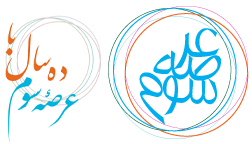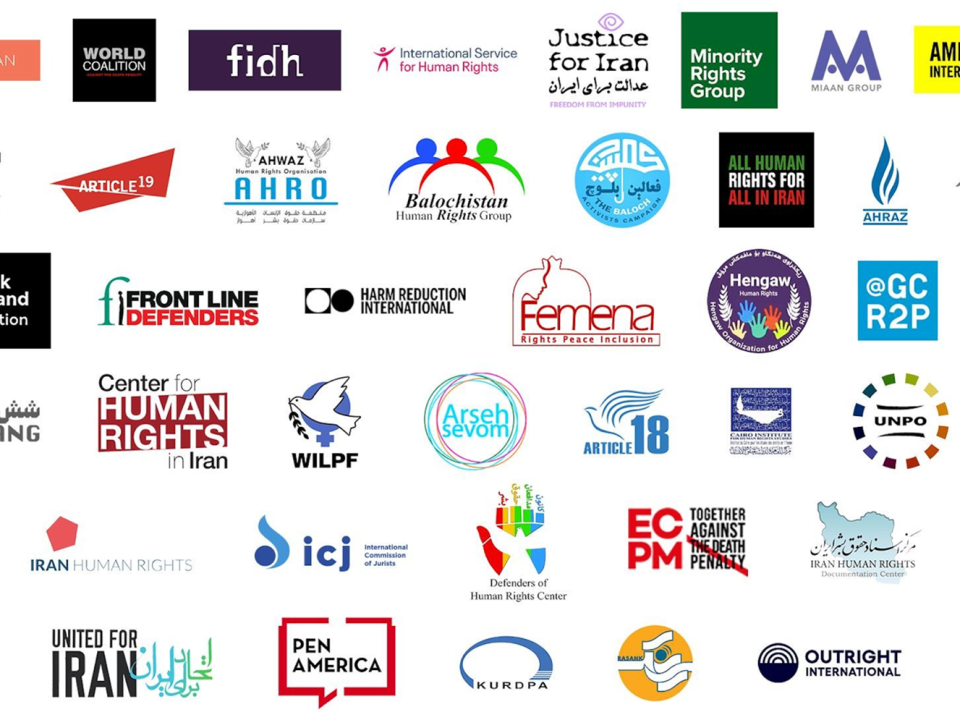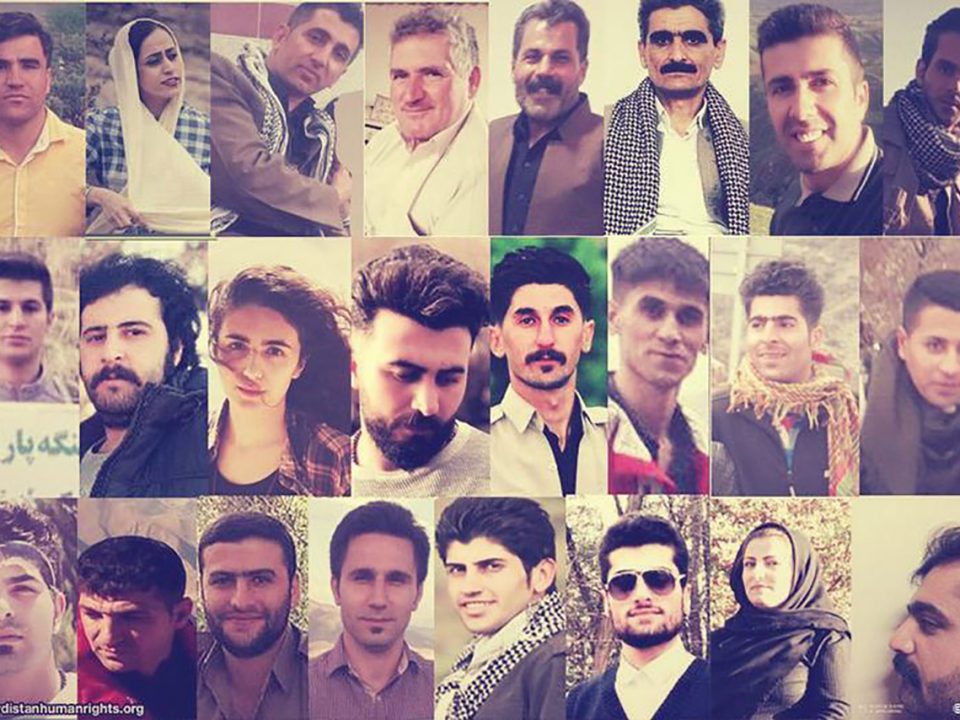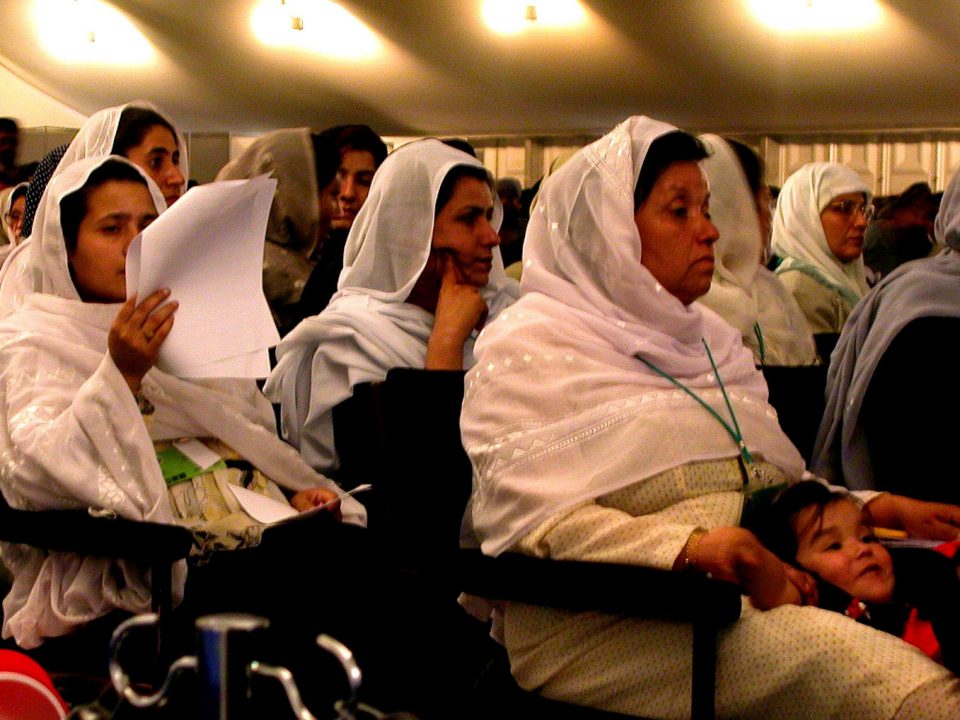عرصه سوم به همراه ۲۵ سازمان مدافع حقوق بشر در بیانیهای خطاب به حسن روحانی رئیس جمهور ایران خواستار همکاری موثر دولت ایران با سازمان ملل متحد به ویژه گزارشگر ویژه حقوق بشر در ایران شد.
در این بیانیه آمده است بازدید گزارشگر ویژه حقوق بشر از ایران فرصتی است برای دولت جمهوری اسلامی به ویژه تمام مقامات مربوطه، وزارت خانههای کلیدی و قوه قضاییه تا بتوانند به طور مستقیم با کارشناسان سازمان ملل گفتگو کنند و بدین وسیله دیدگاهها و توصیههای خود را منتقل کرده و بتوانند به بهبود شرایط حقوق بشر در ایران کمک کنند.
در بخش دیگری از این بیانیه آمده است: جامعه بین المللی بارها نگرانی خود را در مورد وضعیت حقوق بشر در ایران در مواردی همچون نرخ بالای بازداشت خودسرانه و اعدام، تبعیض علیه زنان و اقلیت ها، و محدودیت های غیر ضروری بر آزادی بیان، مطبوعات اعلام کرده است و در این زمینه، گزارشگر ویژه در مورد وضعیت حقوق بشر در جمهوری اسلامی ایران نقشی منحصر به فرد در مستند ساختن این موراد بر عهده دارد … همچنین هفت درخواست برای بازدید از ایران از سال ۲۰۰۵ تا به امروز وجود دارد که شامل درخواست گزارشگر ویژه در مورد وضعیت حقوق بشر در جمهوری اسلامی ایران گزارشگر کار گروه ناپدید شدگان اجباری، گزارشگر ویژه اعدام های فراقانونی، شتابزده یا خودسرانه، گزارشگر ویژه در حق غذا، کارشناس مستقل مسائل مربوط به اقلیت، گزارشگر ویژه در مورد استقلال قضات و وکلاو گزارشگر ویژه در آزادی دین یا عقیده میباشد. طبیعتا مخالفت ایران با ورود این افراد همکاری های میان ایران و مکانیسم های حقوق بشری سازمان ملل را تضعیف می کند
سازمان های امضا کننده این بیانیه تاکید کرده اند برنامه ریزی و سازماندهی سفر گزارشگران حقوق بشر به کشور میتواند یک سیگنال روشن به جامعه بین المللی ارزیابی شود بدان معنی که ایران، در زمان ریاست جمهوری شما قصد همکاری و شفافیت در حفاظت و ارتقاء حقوق بشر را دارد.
متن کامل بیانیه بدین شرح است:
September 24, 2014
To: Dr. Hassan Rouhani
President of the Islamic Republic of Iran Tehran
CC: Ayatollah Ali Hosseini Khamenei, Supreme Leader; Ayatollah Sadegh Larijani, Head of the Judiciary; Mohammad Javad Zarif, Minister of Foreign Affairs
Your Excellency,
We write to you as representatives of human rights and civil society groups that seek the protection and promotion of human rights in Iran to urge the government of the Islamic Republic of Iran to take steps to open, full, and effective cooperation with the United Nations Special Procedures, including the Special Rapporteur on the situation of human rights in the Islamic Republic of Iran.
In particular, we urge you to re-affirm the standing invitation to visit Iran that the Iranian authorities issued to the UN’s Special Procedures in 2002 and to promptly give effect to that invitation by allowing and facilitating visits to Iran by relevant UN special rapporteurs, with priority given to the country mandate. We consider that your government has much to gain from meaningful engagement with the Special Rapporteur on the situation of human rights in the Islamic Republic of Iran. Your government can likewise benefit from engaging with other independent experts that the UN has mandated to examine human rights practices in states around the world. UN Special Procedures can advise governments on measures needed to strengthen legal and other safeguards in order to comply with their obligations under international human rights treaties.
Country visits are an essential means for independent experts to directly observe the human rights situation in any state and to facilitate dialogue with all relevant state authorities. Such visits are an opportunity for the government and all relevant domestic authorities, including key ministries and the judiciary, to engage in dialogue directly with the independent experts appointed by the Human Rights Council. The visits provide opportunities to obtain their views and recommendations regarding measures needed to address abuses and to improve compliance with international law. It is imperative, of course, that these independent experts are allowed open access to visit such locations and hold such
meetings as they consider necessary to fulfill their specific mandates. This allows them to assist the government of the Islamic Republic in meeting its human rights obligations.
Despite the standing invitation that Iran issued to all Special Procedures in 2002, we note that the Iranian authorities have not permitted any special procedure to visit Iran since 2005. That is now almost a decade ago. We note too that the Iranian government committed to cooperate with the Special Procedures during the Universal Periodic Review process in 2009 and 2010. The Iranian government has not subsequently honored that commitment. During its dialogue with the Human Rights Council in 2012 and its subsequent interactive dialogue with the UN General Assembly the government of Iran said that it would invite two thematic procedures to visit Iran. No such visits have yet taken place.
As you will be aware, the international community has repeatedly expressed its concern about the human rights situation in Iran. This includes the high rates of arbitrary detention and executions, discrimination against women and minorities, and undue restrictions on expression, the press, and association. In this context, the Special Rapporteur on the situation of human rights in the Islamic Republic of Iran fulfills a unique role documenting allegations that relate to broad and diverse categories of human rights. There is an important role for all Special Procedures both to investigate and assess these matters first hand and to advise the Iranian authorities on legal, policy and other reforms necessary to safeguard human rights and remedy abuses. Yet, seven requests for visits to Iran that Special Procedures have made to the Iranian authorities remain outstanding since 2005. This includes requests submitted by the Special Rapporteur on the situation of human rights in the Islamic Republic of Iran; the Working Group on Enforced or Involuntary Disappearances; the Special Rapporteur on Extrajudicial, Summary or Arbitrary Executions; the Special Rapporteur on the Right to Food; the Independent Expert on Minority Issues; the Special Rapporteur on the Independence of Judges and Lawyers; and the Special Rapporteur on Freedom of Religion or Belief.
Iran’s failure to permit and facilitate such visits undermines Iran’s responsibility to cooperate with the UN human rights mechanisms. This violates its treaty obligations and casts a shadow over statements that you and members of your government have made since you assumed office in 2013 expressing a desire to improve human rights conditions in Iran. If the Iranian government is serious in that intention, it should immediately stop discrediting the work of the Special Rapporteur on the situation of human rights in the Islamic Republic of Iran, and approve the requests for visits by Special Procedures that are still outstanding. It should move quickly to agree to arrangements for visits or joint-visits by these Special Procedures and provide all appropriate facilitation.
Mr. President, scheduling and organizing early country visits for the country rapporteur and one or more of these independent experts would provide a clear signal to the international community that Iran, under your government, is committed to cooperation and transparency in the protection and promotion of human rights.
Sincerely,
Roya Boroumand, Executive Director
Abdorrahman Boroumand Foundation
Hassiba Hadj Sahraoui, Deputy Director of Middle East North Africa Programme
Amnesty International
Thomas Hughes, Executive Director
ARTICLE 19
Kamran Ashtary, Executive Director
Arseh Sevom
Alirza Quluncu, Representative
The Association for Defence of Azerbaijani Political Prisoners in Iran
Taimoor Aliassi, UN Representative
Association pour les Droits Humains au Kurdistan d’Iran-Genève
Diane Ala’i, Representative to the United Nations
Bahá’í International Community
Mansoor Bibak, Co-Director
Balochistan Human Rights Group
Dr. Shirin Ebadi, Founder and President
Center for Supporters of Human Rights
Joel Simon, Executive Director
Committee to Protect Journalists
Camila Asano, Foreign Policy and Human Rights Coordinator
Conectas Direitos Humanos
Ibrahim Al Arabi, Executive Director
European Ahwazi Human Rights Organisation
Raphaël Chenuil-Hazan, Executive Director
Ensemble Contre La Peine de Mort
Sarah Leah Whitson, Director of the Middle East and North Africa Division
Human Rights Watch
Mani Mostofi, Director
Impact Iran
Hadi Ghaemi, Executive Director
International Campaign for Human Rights in Iran
Jessica Stern, Executive Director
International Gay and Lesbian Human Rights Commission
Phil Lynch, Director
International Service for Human Rights
Mahmood Amiry-Moghaddam, Executive Director
Iran Human Rights
Rod Sanjabi, Executive Director
Iran Human Rights Documentation Center
Saghi Ghahraman, President
Iranian Queer Organization (IRQO)
Mehrangiz Kar, Chairperson
Siamak Pourzand Foundation
Mahmood Enayat, Director
Small Media
Hassan Nayeb Hashem, Representative to the Human Rights Council in Geneva
Südwind: All Human Rights for All in Iran
Firuzeh Mahmoudi, Executive Director
United for Iran
Mohammad Mostafaei, Director
Universal Tolerance Organization




